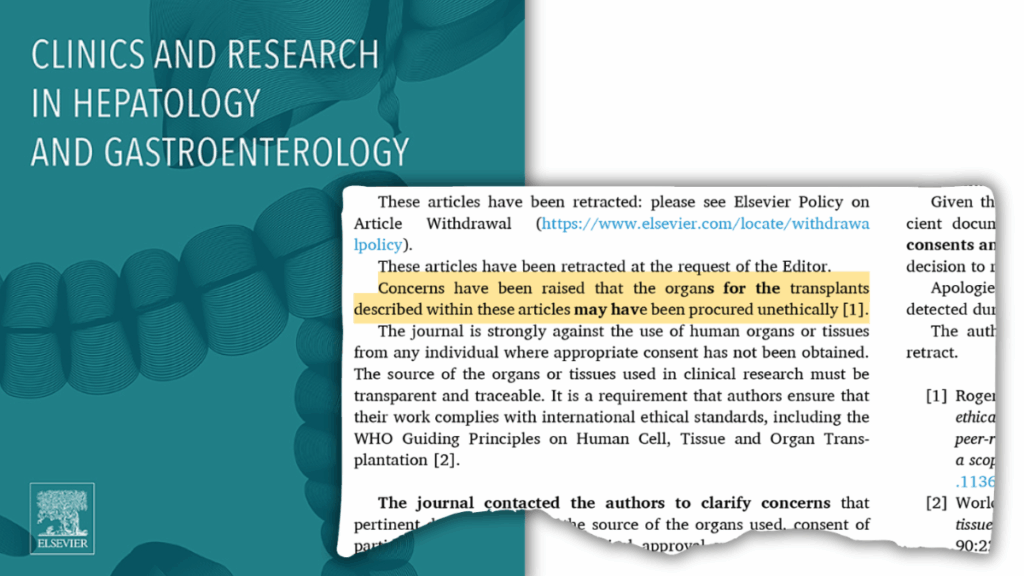
Six years after researchers called for the retraction of more than 400 papers about organ transplantation amid suspicion the organs used in the studies came from executed Chinese prisoners, journals are still working to clear the record.
Although more than 40 papers were retracted or otherwise flagged shortly after the 2019 study was published, by our count, only 44 of the 445 papers have been retracted to date. At least 17 of the articles marked with expressions of concern in 2019-2020 remain as such.
The analysis, published in BMJ Open, found more than 400 studies of organ transplants in China that didn’t report whether the sources gave their consent for donation, nor assurances the organs involved did not come from executed prisoners. As reported by The Guardian in 2019, the study exposed “a mass failure of English language medical journals to comply with international ethical standards in place to ensure organ donors provide consent for transplantation.” Thirteen retractions this year directly cite the Rogers paper.
The latest retractions came October 10, when an Elsevier journal retracted eight studies of liver transplants. The journal, Clinics and Research in Hepatology and Gastroenterology, was one of 173 journals named in the 2019 study.
The retraction notices cite the 2019 paper and state the journal “contacted the authors to clarify concerns that pertinent details regarding the source of the organs used, consent of participating individuals, and ethical approval were lacking and/or unclear in the current article. The authors did not respond,” the notice continues.
Wendy Rogers, a bioethics researcher at Macquarie University in Sydney, Australia, who led the 2019 study, told us the recent uptick in retractions may be the result of emails sent by a volunteer in late 2024 and 2025 to each of the named journals. The volunteer, Simone Francis, is the communications officer for the International Coalition to End Transplant Abuse in China. Some journals didn’t reply at all “while others engaged to some extent,” Rogers said.
A representative from Elsevier confirmed the retractions in CRHG were the result of the organization contacting the journal in August 2023, which was when Elsevier first learned of the issue, the representative said. The “impacted journals promptly initiated an ethics investigation into the relevant publications,” the representative said, but noted “editorial decisions, including whether to retract, are made independently by each journal’s Editor-in-Chief.”
“The broader investigation remains ongoing,” the spokesperson wrote.
As we reported in 2019, Rogers and her colleagues did not follow up with any journals after publishing the call for retractions.
The rest of the 2025 retractions appear in four journals published by Karger, all of which note none of the authors responded to the journals’ requests for additional information.
“It is deplorable that many journals have not retracted unethical transplant research in which the transplanted organs came from non-consenting prisoners of conscience who were killed in the process,” Rogers told us. “Journals have strict human rights and business obligations, which are breached by publishing research that raises credible concerns about human rights abuses.”
Rogers also said journal editors are in a “strong position to raise the ethical standards of research by refusing to publish papers that raise concerns about human rights abuses, including organ trafficking and forced organ harvesting.”
Like Retraction Watch? You can make a tax-deductible contribution to support our work, follow us on X or Bluesky, like us on Facebook, follow us on LinkedIn, add us to your RSS reader, or subscribe to our daily digest. If you find a retraction that’s not in our database, you can let us know here. For comments or feedback, email us at [email protected].
